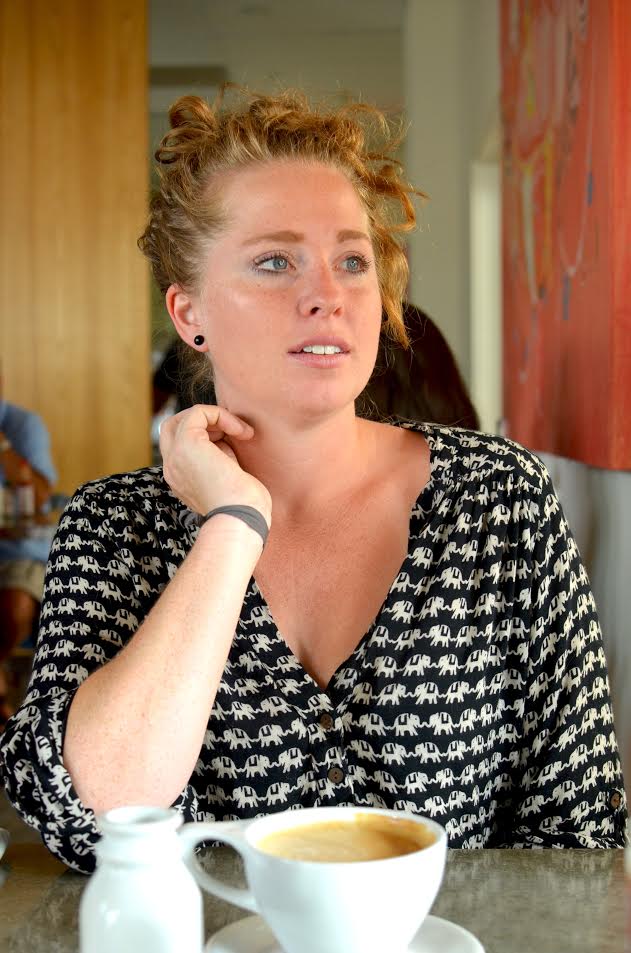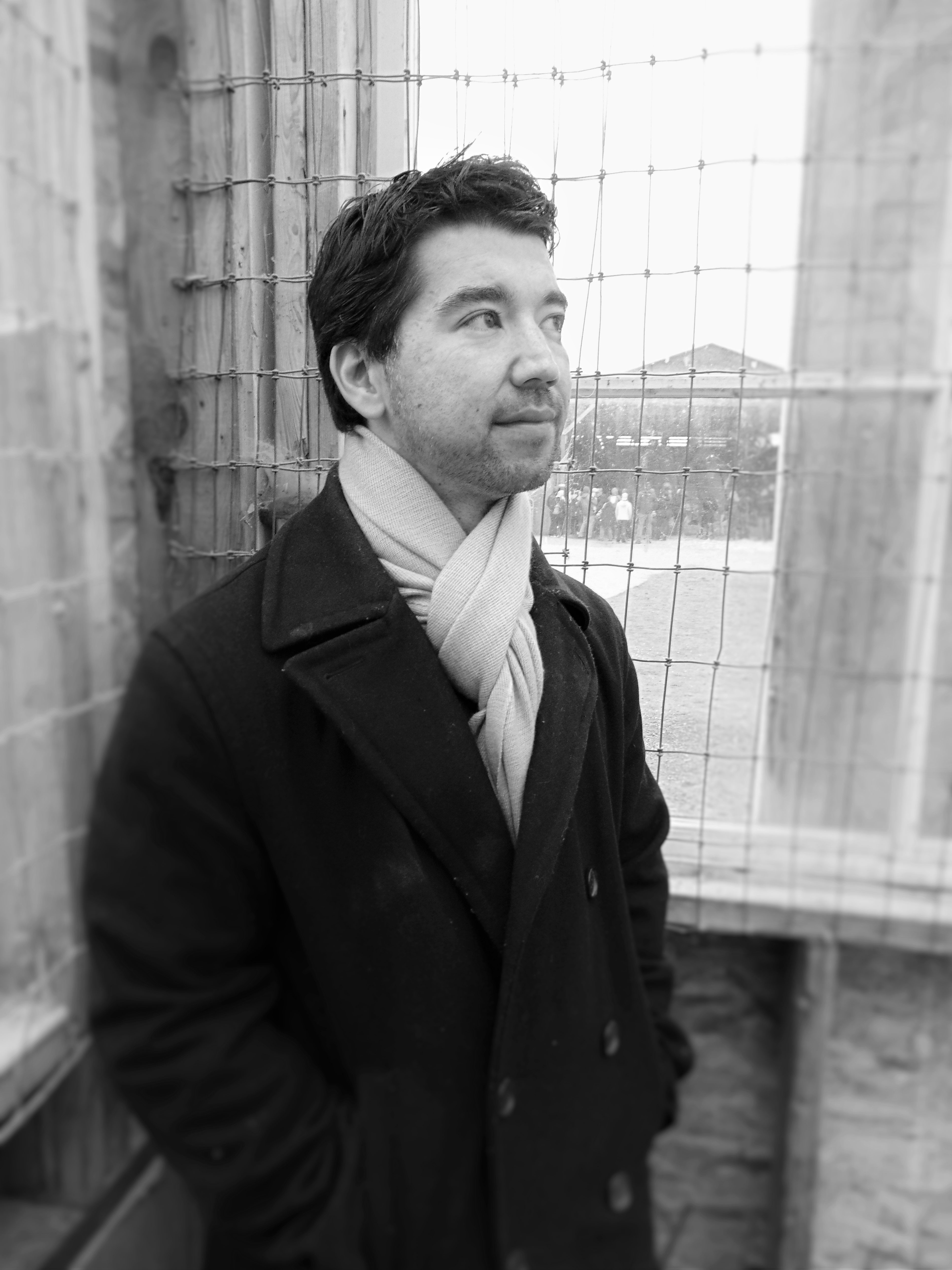43.1 Feature: A Craft Essay by Meghan McClure & Michael Schmeltzer

Meghan McClure lives in Washington. Her work can be found in Mid-American Review, LA Review, Water~Stone Review, Superstition Review, Bluestem, Pithead Chapel, Proximity Magazine, Boaat Press, and Black Warrior Review. Her collaborative book, A Single Throat Opens, will be published by Black Lawrence Press in 2017.

Michael Schmeltzer is the author of Elegy/Elk River, winner of the Floating Bridge Press Chapbook Award, and Blood Song, his full-length debut from Two Sylvias Press. He has work in Natural Bridge, Meridian, and LA Review, among others. His collaborative book, A Single Throat Opens, will be published by Black Lawrence Press in 2017. More often than not you can find Schmeltzer procrastinating on Twitter at @mschmeltzer01.
One Other Thing
by Meghan McClure & Michael Schmeltzer
Isn’t it interesting that the history of drinks can be so muddled? Or maybe it’s not that interesting after all, a few drinks in and you just start pouring things into a glass, chasing that heat and buzz. The first drink I remember us ordering together was a French 75, but I could be wrong about that. Personal histories are muddled too, aren’t they? And we’ve tried to merge fragments of ours into a cohesive piece of writing.
Traced back to the 1920s, the golden drink looks and tastes the way The Great Gatsby reads. More George than Jay in our jeans, we ordered ours at a diner that probably shouldn’t even sell French 75s, conscious of our bank accounts and the children we needed to wake up with the next morning. This drink feels like writing— a luxury in the face of self-consciousness, daily life, the thousand menial tasks that pile up as we turn to the page, to our own muddled memories. Both this drink and writing leave you, as one history of the French 75 goes, reeling like after the kick from a 75mm Howitzer field gun.
To make a French 75:
2 oz. Gin
1 ½ tsp. Sugar
½ oz. Lemon Juice
5 oz. Champagne
Add everything but champagne to a cocktail shaker with ice. Shake. Strain into a champagne flute and top with champagne. Garnish with lemon and pair with this delicious essay that will unravel you like the last sip while your favorite song plays.
*
Our first shared drink (most likely) was coffee. I pushed a stroller nearly a mile in the mist to meet you. Can you think that far back, when I only had one toddler, when you only had pets? Even then life felt full, overwhelmingly so. Now I have two daughters; you have two of your own. Life feels no more full, but the cup is exponentially bigger, the drink a double.
How many years have we shared? How many drinks? Our histories are muddled, and our writing clarifies little. But sometimes muddling adds a complexity otherwise missing. You confuse who wrote what sections within our collaboration. I don’t, but that doesn’t matter. What matters is we each took turns acting as sugared rim or bitter rind. What matters is we wrote our way through intoxication.
“The world asks of us / only the strength we have and we give it,” writes Jane Hirshfield. “Then it asks for more, and we give it.” We build a tolerance to the griefs and joys of life. In my twenties I drank more than I should. Now, in the ash-end of my thirties, I want to pour myself out, dowse the blazing world.
In my writing, and in real life, I want to take you somewhere unique. It’s why I found the Pie Bar, where I had my first Moscow Mule. It’s why this collaboration, where I took you to my past, means so much. Out of all our muddled memories, our familial myths, we created something worth toasting.
To make a Moscow Mule:
6 oz. Ginger Beer (Cock’n Bull preferably)
2 oz. Vodka
½ of a fresh squeezed lime
Combine vodka and ginger beer in a copper mug filled with ice. Squeeze the lime into the drink then add the half. Stir gently. Garnish with a slice of lime, a sprig of mint on the brim. Pair with this beautiful essay, a piece of writing so strong you will never sober from it.
*
So, you’re right. It was coffee. And it was grey out and your sweet daughter was as shy as I was in childhood. I remember my teeth clenching so hard I’d shake at the thought of speaking to a new person, the blaze in my cheeks if I was called on in class, walking with my eyes on my feet so I wouldn’t have to so much as say a “hello.” I learned in college that it was easier to speak to people with a drink in my hand. Coffee, tea, beer, cheap vodka. It didn’t matter what was in the cup, there was so much in my head and up until then not much of it made it out. There is something about the distraction of a rim to circle with my finger, a straw to chew on, a foam cup to bite that makes me forget I’m speaking. It’s a risk, isn’t it? This speaking thing. Writing. There is so much that could go wrong.
But then there are times when it’s easier to speak. Like when the bartender gave you my drink because it was whiskey neat and placed your pink, sugar-rimmed drink in front of me. The absurdity of gender defining our drinks made us laugh and the conversation came easier. Writing together toward a shared story has been the riskiest speaking I’ve done. Risky because it was the story keeping me from telling all my other stories.
When the page is waiting, when there is so much at risk if you don’t say what needs to be said, the best answer is the quickest.
To make something fast:
Grab a mug, pour in two fingers of whiskey or day old coffee heated up in a pot on the stove or if all else fails, walk to the store a couple blocks away for the cheapest bottle of vodka you can find, the stuff in a plastic bottle. Pair with this poem that will light a flame in your blood.
*
We could end it there—with the burn of cheap vodka, with the risk of our shared story spilling into all the wrong places. That may be the most accurate recipe for what we need to say.
If that is too hard to swallow, here is a more palatable one: take two children, add to the Pacific. Splash. Enjoy cold.
Before we met, before we began writing toward our story, we shared the ocean. We were military brats, our fathers serving in the Navy. We grew up in their long absences, waiting on base while they sailed on sea.
Last year I brought my daughters to the Pacific for the first time, and when we arrived I thought this is home. Not the land but the seemingly unending waters. Although it was too cold to swim, I dipped my fingers into the sea to taste the salt, to bring back those childhood years playing in the waves.
Maybe that was the first drink we shared, that briny solution from our youth, those tumultuous waters that took our fathers and brought them back.
“I long for the ocean in times of stress,” writes Tasha Coryell. Is it another kind of home for her too I wonder? She goes on to say it “has the power to kill us and revive us and we will come back to it again and again.”
There are stories, too, we return to repeatedly. Like the ocean they can kill us and revive us. Like the waves they keep reaching toward us. Sometimes all we can do is get bowled over, but there is a certain joy to being overwhelmed. The shock of its power, how alive we become when confronted with such cold. Writing “surrounds the body / fills the body up & it feels good / to be made of 73 percent circulating water.” We are what we tell ourselves. We are water and words circulating wildly, joyous and dangerous as any ocean. And with this shared story of ours, with just one finger to my lips and salt on my tongue, I am home.